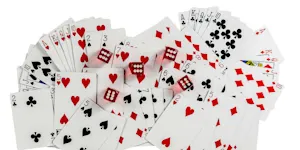What Makes This Word Tick
The word "quash" is a dynamic verb often used to describe the act of forcefully putting an end to something. It carries a sense of authority, whether it's quashing a rumor, rebellion, or legal case. There's a no-nonsense energy about it, like the final word in a spirited debate, leaving no room for further argument.
If Quash Were a Person…
Imagine Quash as a no-nonsense, sharp-dressed judge who always commands the room. With a sharp gavel in hand, Quash insists on order and clarity, and once a decision is made, it's final. There's an air of confidence and authority, and people look to Quash to bring resolution to chaos.
How This Word Has Changed Over Time
"Quash" has retained much of its original meaning over the centuries. It evolved from the Middle English "quassen," which means to crush, derived from Old French "quasser" and ultimately Latin "quassare." Its legal connotations have strengthened, now commonly associated with rejecting something formally or officially.
Old Sayings and Proverbs That Use Quash
While "quash" isn't as prevalent in old sayings as some words, its spirit is echoed in phrases like "nip it in the bud," or "put a stop to it," capturing the decisive action it embodies even in older English wisdom.
Surprising Facts About Quash
Here's a fun tidbit: Quash in medical jargon can relate to the reduction of bone density, where it's sometimes used metaphorically to describe softening or lessening. The word also pops up intriguingly in the world of law, tasked with nullifying decisions or statements.
Out and About With This Word
You'll find "quash" frequently in the legal realm, where judges quash indictments or rulings. It's not just confined to the courtroom, though; anytime someone wants to decisively stop misinformation or squash rumors, "quash" is a favorite choice.
Pop Culture Moments Where Quash Was Used
While quashing doesn't steal the spotlight often, it sneaks into political dramas and legal thrillers whenever dismissals or objections need a powerful word. It's the kind of term you might hear on a gripping TV show like "Law & Order" or in a political thriller novel.
The Word in Literature
"Quash" fits seamlessly into the world of legal thrillers and political narratives, where strong verbs like this thrive. It's the kind of word authors like John Grisham might reach for when navigating courtroom showdowns or heated debates.
Moments in History with Quash
Think of events like the Boston Tea Party or the rise of print media challenging authorities. While "quash" might not have been spoken aloud, it captures the governmental desire to suppress actions and ideas they deemed threatening.
This Word Around the World
In some languages, "quash" translates closely, maintaining its formal and decisive aura. In Spanish, it might be akin to "anular," while French speakers might say "annuler" when leaning into its legal uses.
Where Does It Come From?
Latin roots give us "quassare," meaning to shake or shatter, perfectly capturing the original physicality before it became more figurative in today's usage. The transit from French to English brought along its mighty authoritative tone.
How People Misuse This Word
People occasionally mix up "quash" with "squash" because both convey an act of suppression. However, "quash" is for ending policies or rumors, not physically flattening things, which is more "squash's" territory.
Words It’s Often Confused With
Squash: Often confused due to its phonetic similarity, but squash is more physical (like squashing a bug).
Suppress: While similar in context, suppress is often more about containment rather than termination.
Nullify: This is another legal term related to invalidation but not used as broadly outside formal contexts.
Additional Synonyms and Antonyms
Synonyms for "quash" include "annul," "cancel," and "disallow." Its antonyms are "allow," "approve," and "support," reflecting its strong presence in rejection and dismissal.
Want to Try It Out in a Sentence?
"Faced with mounting evidence, the judge decided to quash the indictment, putting an end to the drawn-out legal battle."
















